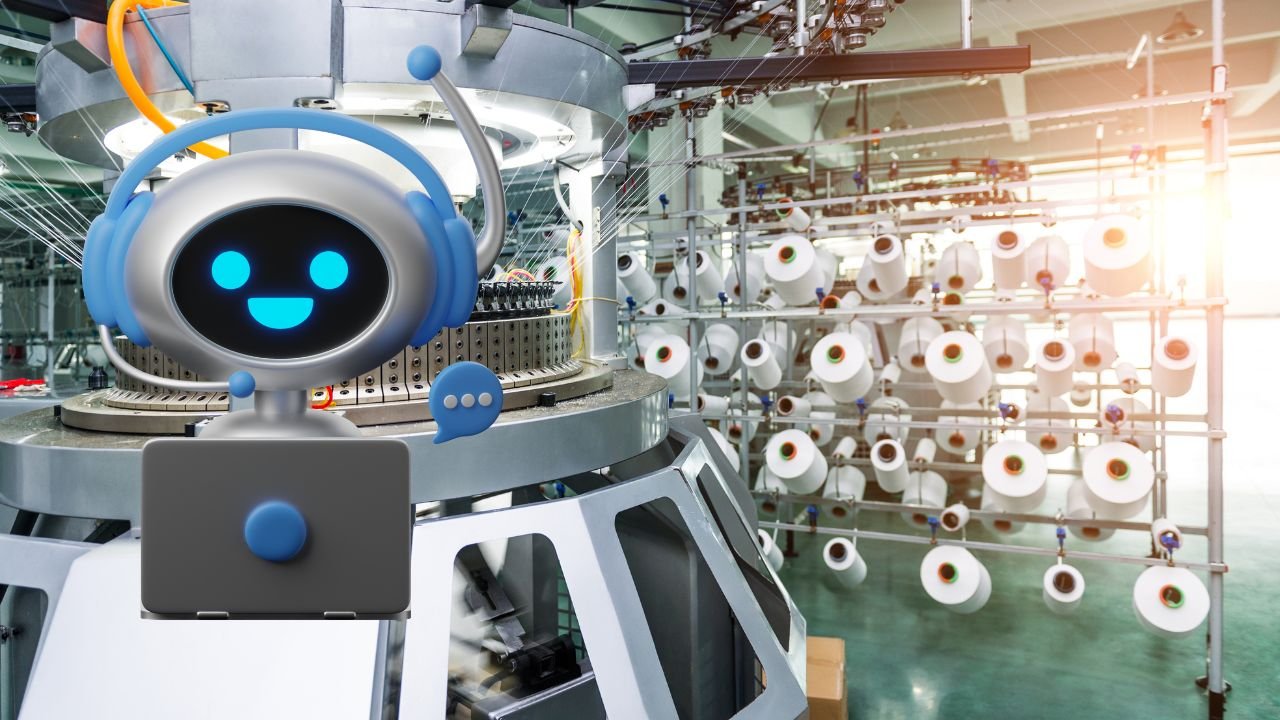Textiles industry is a huge industry the world over, it produces products in a massively bulk quantity, provides employment to millions of people, generates and contributes tremendously to the economy, supports many other allied industries and many other significances! With such a large scale of the industry, constant change and upgradation are inevitable, the latest buzz in the industry is AI. With artificial intelligence in the textile industry and artificial intelligence in the apparel industry, the producers have automized many processes and thus reducing time, better quality, human error and dependency.
The cloth we wear today must have gone through complex processes such as spinning, weaving, dyeing, finishing, garmenting, checking, packing, and so on, from the beginning as raw material to the final wearable product, it must have been gone through many factories at many people and many locations. The big textile companies or top apparel manufacturers produce in bulk, their production capacity is large, AI helps them automize certain processes and ease out their operations with less prone to errors and more efficiency and accuracy level. This article provides an overview of the applications of AI (artificial intelligence) in the textile industry. The use of AI and the IoT is increasing in the textile industry, as per estimation the AI software market may have crossed over US$60 billion by 2024. ML as a part of AI is very popular and highly useful where machines process and analyse vast amounts of data they collect to perform tasks and processes. In the textile manufacturing industry, AI is being used in various areas and processes such as color recipe formulation, color matching, pattern recognition, garment manufacture, process optimisation, quality control and supply chain management.
AI is enhancing quality control in textile manufacturing

quality and inspection are very important processes, before the fabric is dispatched for the next process, it goes though a stringent quality check so no defective materials go further. AI-driven quality control with machine learning algorithms can detect defects faster than humans, thus improving accuracy and efficiency. Smart manufacturing allows for predictive maintenance, reducing downtime and increasing productivity. The factories/companies that are enabled with AI can analyze data to achieve consistent and accurate quality control, reducing waste and giving companies a competitive edge in the industry. Integrating AI into production lines leads to reduced costs associated with faulty or substandard products.
AI for innovative designs and development

AI has transformed textile designs and development processes. AI can analyze the huge amount of data and thus it’s algorithms can assist the companies with better patterns with unique appealing and textures and colors. By leveraging machine learning algorithms and analyzing existing designs, trends, and customer preferences databases, AI expedites the design process and ensures that the products align with market demands.
AI for supply chain and resource management
Supply chain management, resource management and energy efficiency are very crucial processes for textile manufacturers. By analyzing historical data, market trends, and external factors such as weather conditions, AI accurately predicts the demand, optimize inventory levels and recommends various strategies of the supply chain, AI plays a crucial role in optimizing the supply chain. It helps manufacturers to maintain stock and minimize stockouts, reduce excess inventory and streamline production schedules, thus it helps to improve profitability and also customer satisfaction. AI also plays a crucial role in optimizing energy consumption, by leveraging real-time data from sensors and IoT devices, AI algorithms monitor and control energy usage, identify areas of inefficiency, and suggest ways to optimize energy consumption. This reduces operating costs and promotes a more sustainable and environmentally friendly approach to textile manufacturing.
AI for the apparel industry

AI is making a big impact on sustainable and customized apparel manufacturing. Modern imaging techniques let end-users make 3D renderings of their body to facilitate cheaper and less resource-intensive custom clothing manufacturing. Generative design is another technology making waves in the apparel industry. Fashion/apparel designers and engineers use an AI algorithm to choose material and performance constraints, then instruct an AI to generate product designs meeting those criteria. The result is a wider variety of workable designs and a substantial reduction in time and material waste.
Conclusion
Apart from the listed above, AI is reforming many other processes. Overall, artificial intelligence in textile, apparel and fashion production has shown promising results in terms of improving efficiency, reducing waste, higher profit and enhancing product quality. The producers can optimize their production processes and ensure that their products meet industry standards. The future of AI in the textile/apparel/fashion industry looks promising and it is going to be a necessity for the industry to stay relevant and thrive in the years to come.
